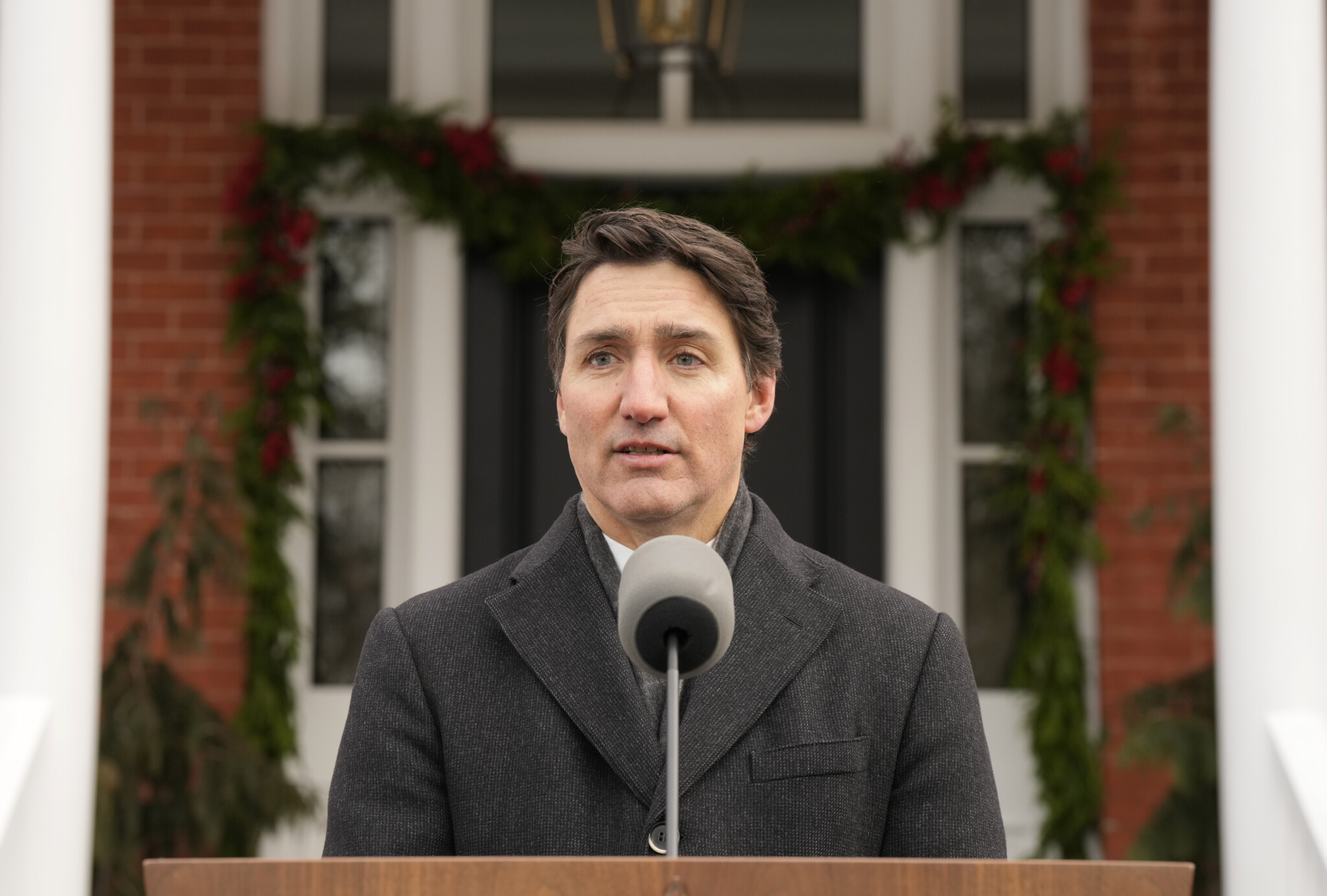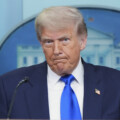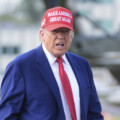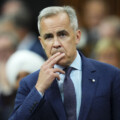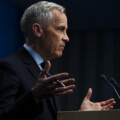With the polling numbers too low, and the calls from his own party to step down too loud, not even Justin Trudeau could convince himself any longer that he could continue on as leader of the Liberal Party or prime minister of Canada. Announcing his intent to resign from both positions once a suitable successor is found, Trudeau turned the page on ten years in power on Monday.
What should we make of his resignation? What does this mean for the Liberal Party moving forward? And what does this mean for the country as a whole? We’ve gathered some of The Hub’s most connected insiders and experts to provide their instant analysis of this week’s dramatic developments and answer these questions and more.
Justin Trudeau ducks his last fight
By Howard Anglin, former deputy chief of staff to Prime Minister Stephen Harper, now a doctoral student at Oxford University
Trudeau leaves office as he has lived his life: careless of the consequences for others. A spoiled rich kid, a narcissist, and a foolish dreamer, he couldn’t even exit without making a new mess for his party to clean up. As I write this, the Liberal party suits are frantically rewriting the rules for an awkward leadership race to accommodate his inopportune timing. And then there is the bigger mess he leaves his country: a lame-duck government of C-list ministers to face the most aggressive American administration since Polk’s.
For all his talk of being a fighter and never wanting to be counted out, in the end he ducked his last fight and will go out with a whimper waving a white towel at the final bell. For that he has no one to blame but himself. It is his fault and his fault alone that after nine years he doesn’t have a record he could fight an election on. He will leave slipping out the back door as his successor moves in the front. It’s a sorry but fitting ending for a ruinous prime minister.
Trudeau just added more fuel to the economic fire
By Trevor Tombe, professor of economics at the University of Calgary and a research fellow at The School of Public Policy
With less than two weeks until President-elect Donald Trump takes office—and the threat of crippling tariffs on Canadian exports looming—Canada faces growing economic uncertainty. This could significantly drag down investment, growth, productivity, and employment. The only way out is a strong and stable government with a clear mandate to implement domestic policy improvements and negotiate meaningfully with the United States.
That requires an election.
Instead, Prime Minister Trudeau has chosen to announce his intention to resign as Liberal leader and PM after the party selects a replacement, delaying the chance for Canadians to set a clearer path forward by many months. This decision amplifies uncertainty and could come at significant economic costs.
From capital gains tax changes that were never implemented but are still being enforced by the CRA, to looming regulations on key industries, to Canada’s productivity crisis, to a weak negotiating position with the United States under our now lame-duck government, our economic policy outlook is murkier than ever.
The data backs this up. The leading index of policy uncertainty shows that, as of December 2024, uncertainty in Canada has surged close to the levels seen in early 2020 during the COVID-19 crisis. January will surely push that even higher.
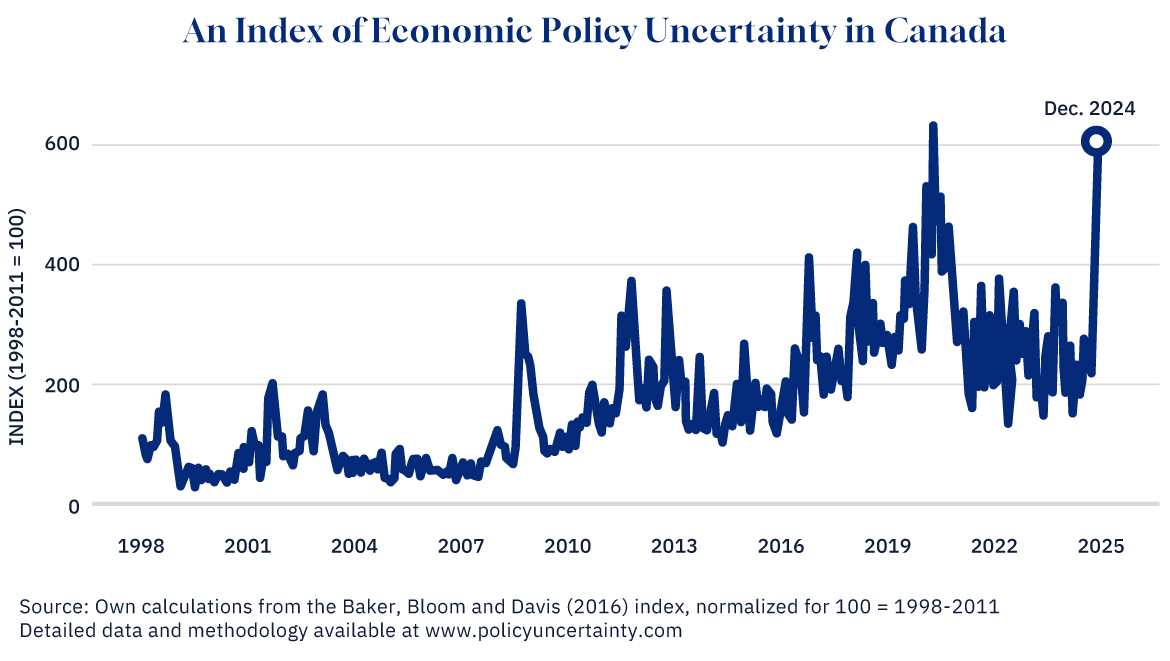
Graphic credit: Janice Nelson.
By delaying an election to provide a strong mandate to the next federal government—regardless of which party wins—Trudeau’s decision adds more fuel to our economic fire at a time when Canada can least afford it.
Trudeau’s terrible timing
By Eric Lombardi, founder and president of More Neighbours Toronto
Justin Trudeau’s resignation might be the most ill-timed curtain call in Canadian political history. If the Liberals truly wanted a fresh leadership race, the starting gun should have been fired months ago—November at the very latest. Now, we find ourselves facing economy-crippling tariffs, without a prime minister who possesses the democratic authority to effectively negotiate anything until May at the earliest. That’s practically half a year of political thumb-twiddling, and in a climate where Donald Trump is already cracking jokes about Canada becoming the 51st state, we might not have that luxury.
This is more than a miscalculation; it’s a profound failure of leadership. No matter who ultimately claims the mantle of Liberal leader, the party has shown they’re willing to put internal drama over the country’s best interests. In a scenario where national confidence is waning, the most respectable move for Liberal MPs would be to pick an interim leader from among their ranks and head straight to an election. Then, at least, we’d know where everyone really stands.
As for the notion that the new leader could soon become prime minister again—well, I haven’t heard a convincing argument for that either. It’s hard to see how a leadership race is worth the time when the next election (or even the one after that) might be a lost cause for the Liberals. Proroguing Parliament under ordinary circumstances might not be unforgivable, but the window to do it smartly closed months ago.
Trudeau’s biggest regret, he says, is not delivering on electoral reform. Surprising, given the hopes he dashed for a younger generation convinced the future was bright. Turns out, more pressing regrets could include rising living costs, a struggling economy, and a national mood that has dimmed from a decade ago.
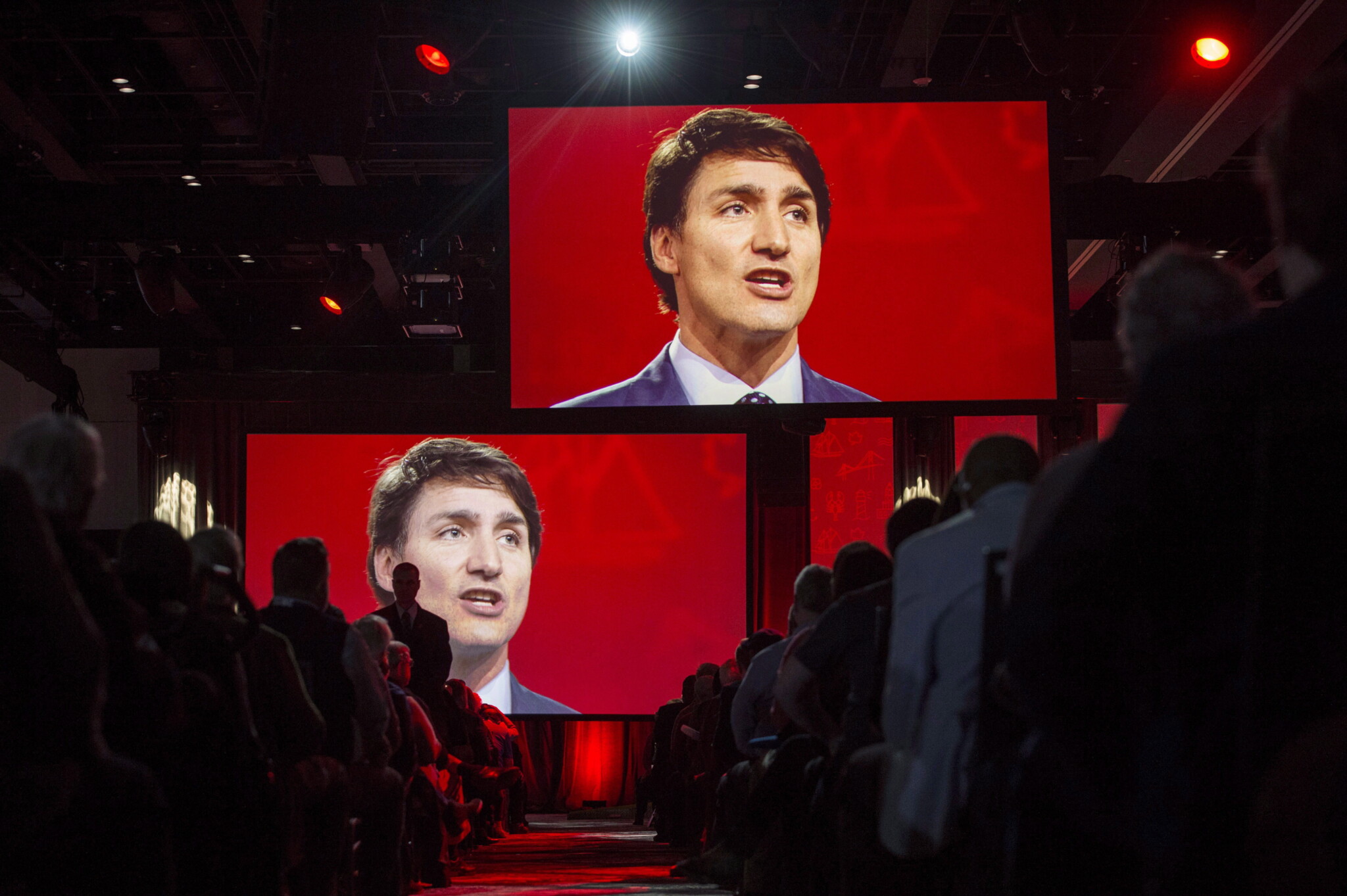
Video screens show Prime Minister Justin Trudeau as he delivers a speech at the federal Liberal national convention in Halifax on Saturday, April 21, 2018. Darren Calabrese/The Canadian Press.
It’s too late to undo the damage now
By Richard Shimooka, a Hub contributing writer and a senior fellow at the Macdonald-Laurier Institute
Trudeau’s announcement essentially is the worst-case scenario for any effort to effectively manage the looming crisis in Canada-U.S. relations.
The critical questions facing Canada in foreign and defence policy are on hold between now and an inevitable election. Leaders in other Westminster parliamentary democracies like the U.K. would have left long ago given the lack of party support, for no other reason than that they intuitively understood their lack of legitimacy would severely impede their ability to implement decisions even under normal circumstances. The coming months are far from normal. They will require effective and clear-eyed leadership that can harness all instruments of political, bureaucratic, and national economic power.
Yet, prorogation has essentially frozen the government for this period. The caretaker government that Trudeau now oversees has no political legitimacy and a vanishingly small capacity to make deals with the incoming American administration. If President Trump imposes a set of tariffs on Canadian exports, there is almost nothing that Trudeau can offer in return. That outcome could be exceedingly damaging for the country, with a potentially far worse economic impact than COVID-19 if not effectively managed. Any alternative would have been better than this. And yet here we are. By the time an election is held and presumably a new government is sworn in, it could be too late to undo the damage.
The Liberals just killed their own attempts to control the internet
By Peter Menzies, a former newspaper executive and past vice chair of the CRTC.
The prorogation of Parliament means that unless opposition parties all agree—which won’t happen—bills before Parliament are now dead.
That has huge consequences for legislation designed to regulate the internet.
Chief among those is the Online Harms Act. Already broken into digestible portions, this bill would have created a Digital Safety Commissioner to oversee problematic speech on social media platforms, expanded the criminalization of hate speech, and empowered the Human Rights Commission (still lacking a chief commissioner) to take complaints based solely on speech. Also gone is Bill S-210 which would have regulated sexually explicit material by making it accessible to adults only and requiring online age verification. Most of all, it in all likelihood stalled—perhaps fatally—changes required to implement a new mandate for the CBC.
History will look kindly on Justin Trudeau—the present not so much
By Jordan Leichnitz, a political strategist who has worked in senior roles in the federal New Democratic Party of Canada
No, this isn’t another season of Succession—it’s just a month that has delivered more real-life drama than most Canadian politicos could hope for in a career.
Monday’s resignation was a subdued end to the political death spiral kicked off by Chrystia Freeland’s stunning resignation as finance minister in December. There was realistically no way back from the abyss for the prime minister once it was clear that he had lost the support of caucus and parts of cabinet, although he was perhaps the last to know it.
As predictable as it was, his decision has come so late that he has hobbled both his party and the country in a moment of real peril.
The Liberals now face a certain election in less than three months, precious little time to turn around their dire electoral fortunes and introduce a new leader to Canadians. In the crucible of a looming trade war with our closest ally, Canada now has a shuttered Parliament and a lame-duck prime minister—all so the Liberal Party can sort itself out and potentially eke out official opposition status.
In the long run, history will be kind to Prime Minister Trudeau. He was a consequential prime minister who, with NDP prompting, made important improvements to our social safety net and saw Canada through a brutal pandemic. But in the short run, few Canadians and even fewer Liberals will have reason to thank him for delaying the inevitable.
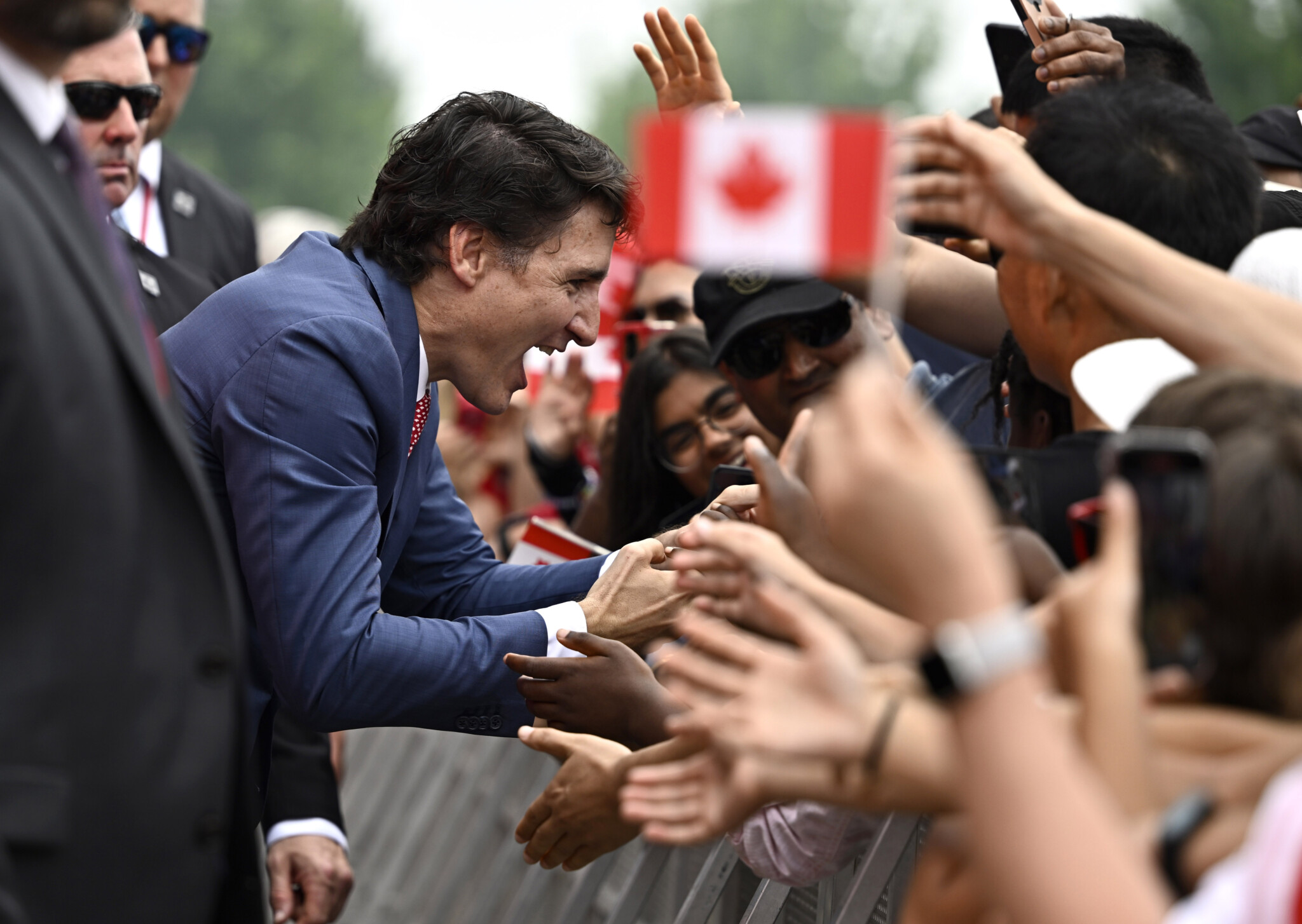
Prime Minister Justin Trudeau greets people in the crowd during the Canada Day noon show at LeBreton Flats in Ottawa, on Saturday, July 1, 2023. Justin Tang/The Canadian Press.
Canada’s troubled romance with the Trudeau family finally comes to an end
By Wodek Szemberg, a social and political commentator who spent many years working for TVO
Canada has long prided itself on moderation, on being a nation of quiet pragmatism and compromise. So how do we explain its decades-long fascination with the Trudeaus, two leaders who rejected moderation for the grandiose belief that they could remake the country in their own image? Did Canada really need two Trudeaus within fifty years? Or do they reflect something more unsettling about Canada’s search for identity?
Pierre Trudeau embodied the cerebral liberalism of his era. He championed grand ideas: bilingualism, multiculturalism, and constitutional reform. He projected intellectual rigour and a cool detachment, steering the country through crises like the October Crisis and the threat of Quebec separatism. Pierre believed Canada’s identity could be shaped by ideas rather than emotion—a calculated project of national unity through strategic compromise. For better or worse, he left behind the “Trudeau generation,” a cohort that still reveres him as the architect of modern Canada.
Justin Trudeau, by contrast, reflects a different age, one consumed by emotion and symbolism. In 2015, he rose to power as the antidote to a country adrift, wielding charisma and the nostalgia of his father’s name. But where Pierre sought unity, Justin sought atonement. His politics of empathy produced grand gestures, like lowering the flag indefinitely for unconfirmed graves and mainstreaming land acknowledgments rather than substantive solutions to Canada’s challenges. His version of liberalism asks Canadians to define themselves by guilt rather than ambition.
For all their differences, the Trudeaus share one defining trait: a compulsion to reshape how Canadians see themselves. Pierre built Canada as a multicultural ideal; Justin turned the mirror inward, forcing the country to grapple with its colonial past.
Are the Trudeaus essential to Canada’s story, or do they reveal a deeper anxiety about the nation’s sense of self? Either way, Canada deserves leaders who can lead without the need to be its reflection.
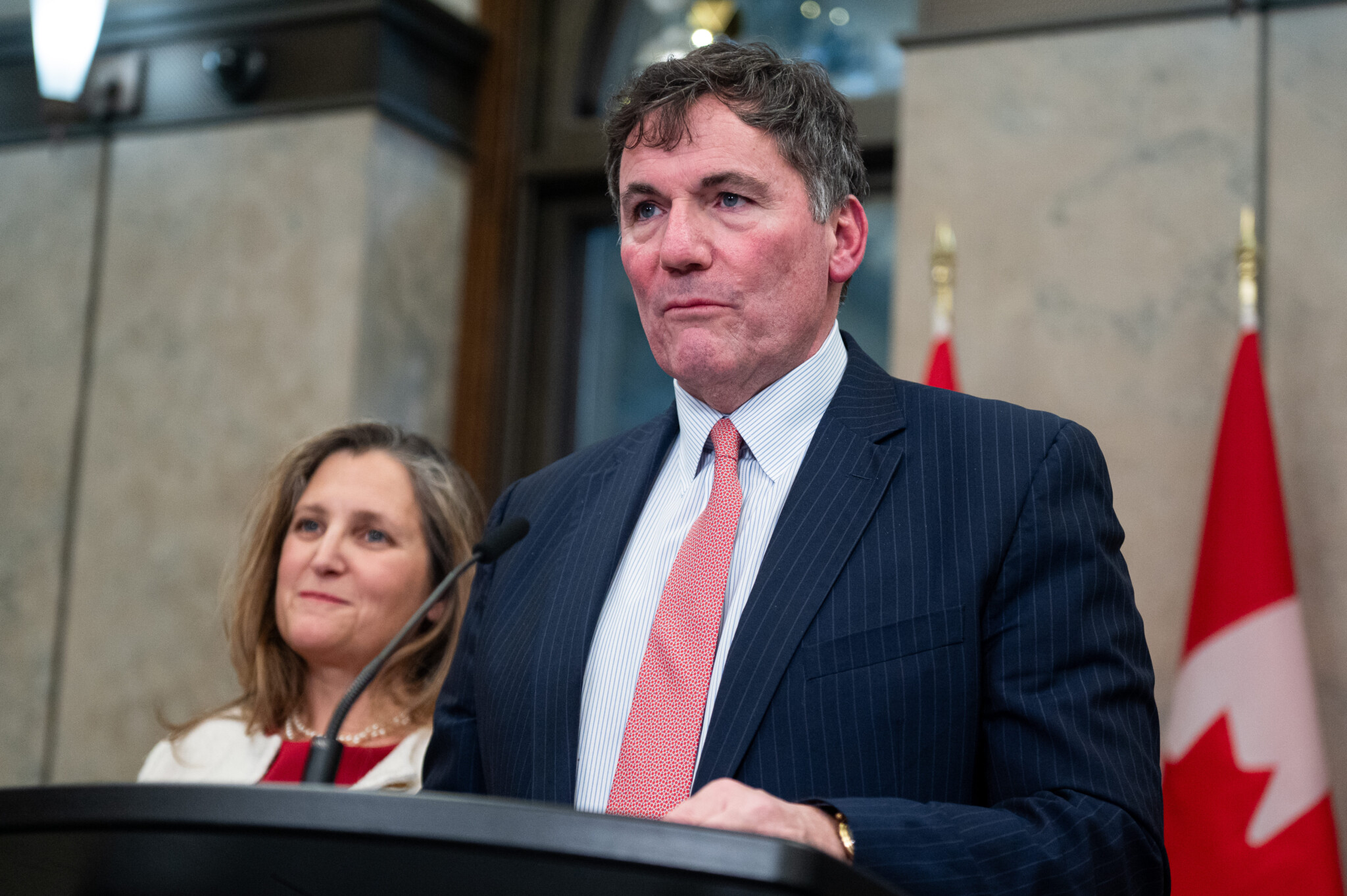
Minister of Public Safety, Democratic Institutions and Intergovernmental Affairs Dominic LeBlanc delivers remarks on Parliament Hill in Ottawa, on Wednesday, Dec. 11, 2024. Spencer Colby/The Canadian Press.
The Liberals can’t get cute—they must pick the best campaigner to lead them
By Scott Reid, a principal and co-founder of Feschuk.Reid who previously served as communications director for Prime Minister Paul Martin
To my Liberal friends, I say this: our ass is still in a sling.
By pledging to step aside, Trudeau has offered the party faithful their first good news in almost two years. Suddenly, the campaign that Poilievre wanted will not be the one he gets. Trudeau’s spiraling public approvals will no longer work double-time for the Conservative leader. But the Liberals remain 20-plus points back in public support and face a punishing uphill climb.
How to avoid a catastrophic, historic rinsing must motivate every word and wish the party utters from this point forward.
Unfortunately, this week’s two initial decisions make that task even harder. To retain Trudeau as the face of the government until a successor is selected constitutes a serious risk to renewal. Even worse, leaving that newcomer mere weeks—possibly days—before the launch of an election is madness.
The party has one hope left: pick the best raw political athlete available. Which candidate possesses the greatest ability to communicate and connect with middle-class voters? Who can take the piss out of Poilievre? Or toss a weakened party on their back and ignite some excitement?
Don’t complicate this decision. Don’t talk yourself into contorted logic or contrived options. Pick the best campaigner. Period.
Your first two post-Trudeau decisions have been flawed. Make the next one correctly. Because remember, our ass is still in a sling.
Why are we acting surprised? This was inevitable
By Theo Argitis, managing director at Compass Rose Group and publisher of the Means & Ways newsletter
Some of the most important lessons from Justin Trudeau’s resignation this week are timeless ones.
First, politics is cyclical. You can’t outrun Father Time, and in Canadian politics, approaching a decade in power often signals the end of the road as voter sentiment shifts. Only two prime ministers have ever won four consecutive elections—Sir John A. Macdonald and Wilfrid Laurier—and it hasn’t happened in over a century.
Second, building a political coalition around spending doesn’t work. The more money Trudeau spent, the lower his Liberals fell in public opinion.
Third, the game is over when you start believing your own narrative—when you drink your own bathwater, as the saying goes. Trudeau’s story about himself is that he’s a fighter, that his enormous capacity to endure gives him an edge.
This was a virtue in 2015. But somewhere along the way, what began as a working ethos morphed into a caricature of self-indulgence, arrogance, and delusion. That sense of infallibility left us with a deleterious political cocktail of ambition and desperation, which led to poor decision-making and policy incoherence during the final couple of years of his mandate.
This is why his tortured step down from power feels so anticlimactic. It was inevitable.
Is it Christy Clark’s time to shine?
By Kirk LaPointe, The Hub’s B.C. correspondent
We know now that Justin Trudeau was an experiment for the venerated Liberal leadership: lineage over resumé, a brand ambassador for a progressive value set, chosen for electability over vision, with a performative perseverance that became the country’s fingernails on the chalkboard.
Finally, four decades after his father took a walk in the snow, the son took to skiing on it to reflect and realize the same percentage of his caucus as his country wanted him out. Few would have predicted he’d reach his 10th year as prime minister, or that in staying far too long he’d sentence his party to oblivion and obscurity.
British Columbia has thought of Trudeau as a homeboy. His mother is iconic here and he sowed many of his wildest oats on its soil as a teacher, bouncer/bartender, snowboard instructor, and, yes, blackface party animal.
We are next sending another offering Ottawa’s way in former premier Christy Clark, the longest-serving female first minister, an adept retail politician equally comfortable in a room of millionaires and miners, and likely to be the most prominent leadership candidate of appeal to conservative Liberals. If she has any B.C. baggage eight years after she lost office, she at least has no national baggage of the last nine years. The House of Commons would be a rock show with her and Pierre Poilievre across the aisles.
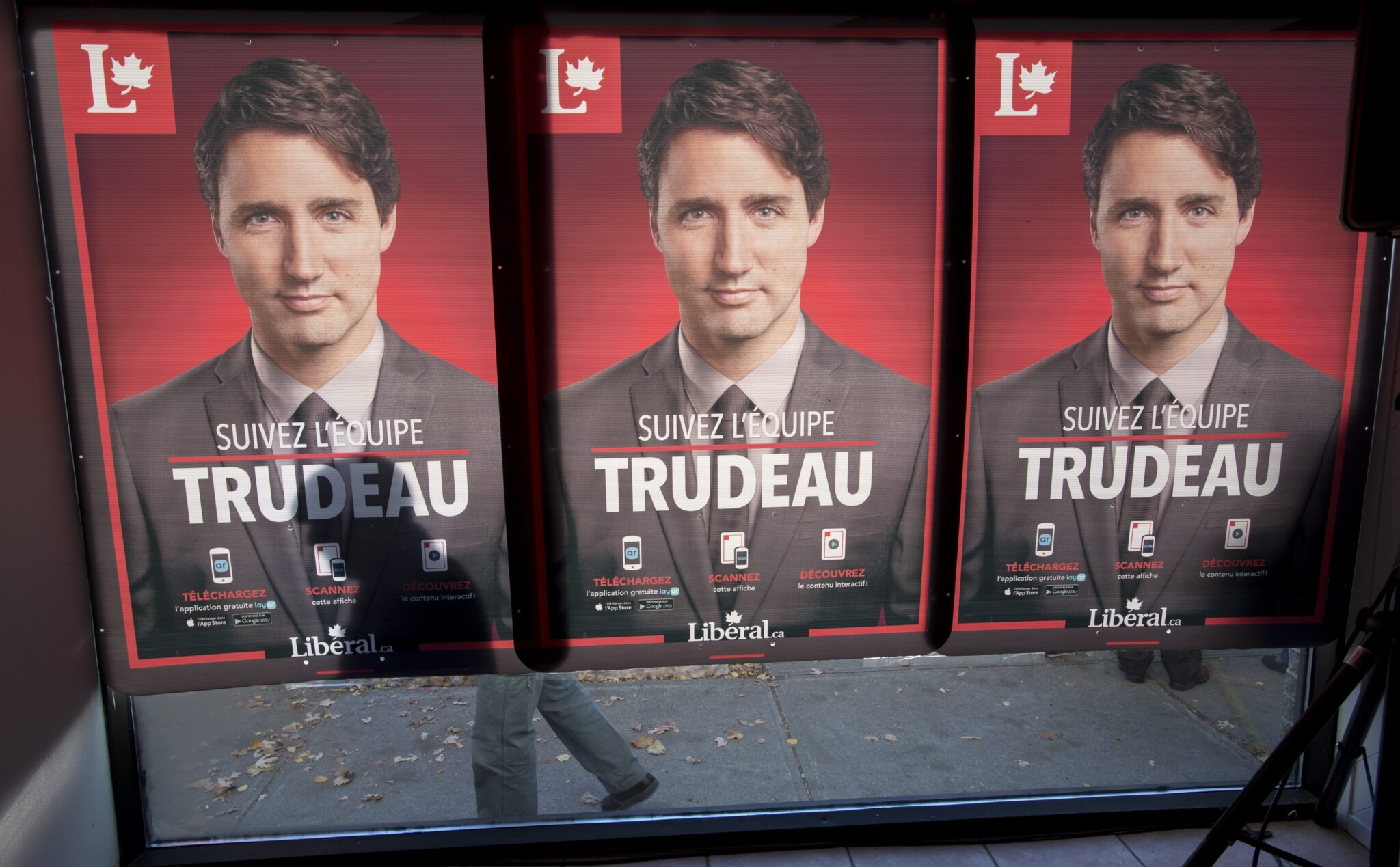
A man casts a shadow on a row of campaign posters Liberal leader Justin Trudeau Thursday, October 15, 2015 in Montreal. Paul Chiasson/The Canadian Press.
More than anything else, Justin Trudeau will be remembered as a progressive champion
By Marc Kealey, president of K&A Inc., a Canadian public policy, research, and management consultancy and a former aide to Liberal Prime Minister John Turner
Justin Trudeau has been a known entity to Canadians his entire life. The son of a great prime minister; a socialite; an activist; a provocateur. And then, of course, came that speech at his father’s funeral. He seemed bound for political life. Elected in 2008, he was touted as a future PM—one held to a higher standard.
Elected leader in 2013 Trudeau seemed on a fast track, building back popularity for the Liberal brand and his own personal loyalty. Victory in 2015 gave Trudeau the podium to champion a progressive agenda in government. The euphoria faded quickly as an astonishingly ill-communicated vacation to a private island, among other head-shaking decisions, led to a diminished brand and successive minority governments in 2019 and 2021.
In 2025, he leaves more enigmatic than at any time we have known him. In the final analysis, leadership is personal. People need to know more about the leader than the fact that he is our prime minister. They want to know his real values, how he prepares, and what drives him. Did we really know Trudeau?
My political mentor and friend and former Prime Minister John Napier Turner was all about leadership. “People govern people,” he would say, “and people who don’t know how to make things happen for themselves in positions of power won’t know how to make things happen for others they lead—and that’s the difference between simply leaving a track record or leaving a legacy…”
One certainty is that what people will say about Trudeau will be less about what has been achieved for himself and more about what has been achieved for Canadians and beyond. He took stands on things that matter—Indigenous reconciliation, climate issues, and women and children. It was also true that his leadership virtue, taken to excess, became a vice and what was once a strength, became a weakness.
Trudeau’s full impact may never be known, but what we do know is that, as a progressive champion, he will certainly be remembered as a consequential prime minister.

People protest on the anniversary of the police action that broke up the “Freedom Convoy” demonstrations, on Parliament Hill in Ottawa on Saturday, Feb. 17, 2024. Patrick Doyle/The Canadian Press.
Justin Trudeau’s legacy is a divided, ‘post-national’ Canada
By Darrell Bricker, global CEO for Ipsos Public Affairs
Legacies are always tricky to assess, especially for leaders whose time in office is still fresh in our minds. But if history teaches us anything, it’s that Canadian prime ministers are judged on three core issues: keeping the country together, managing relations with the United States, and fostering a sense of what it means to be Canadian. For Justin Trudeau, the debates over his performance on all three will be fierce, and the answers are far from settled.
On national unity, Western alienation, particularly in Alberta and Saskatchewan, surged during Trudeau’s tenure. Federal policies like the carbon tax and pipeline delays became rallying points for frustration, seen as prioritizing urban progressive ideals over the economic survival of resource-dependent regions. Trudeau’s Ottawa became, in the eyes of many Westerners, a government that didn’t listen, or worse, didn’t care. Meanwhile, in Quebec, the Parti Québécois found new life, polling ahead of the Coalition Avenir Québec and openly considering another sovereignty referendum. Far from pulling the country together, Trudeau’s tenure highlighted just how fractured we’ve become.
On Canada-U.S. relations, Trudeau deserves credit for navigating the chaos of Donald Trump’s first presidency. The renegotiation of NAFTA into the USMCA was no small feat, preserving the backbone of our economic relationship with our largest trading partner. But let’s not forget the power dynamic here. Canada spent much of that time on the defensive, responding to the whims of an unpredictable president. And Trump’s recent comment that Canada might as well be the 51st state, while ostensibly meant as a jab, underscores a hard truth. Maintaining our sovereignty and unity is an increasingly steep climb.
Then there’s Canadian identity. This is where Trudeau made his boldest, and arguably riskiest, bet. His claim that Canada is “the first post-national state” earned international plaudits, but at home, it left many Canadians cold. For those outside of Toronto, Montreal, and Vancouver, Trudeau’s vision felt detached from their lives and values. National pride declined on his watch, with fewer Canadians identifying with a cohesive national story. By going all in on identity politics and moving away from the shared symbols and traditions that once anchored our sense of self, Trudeau inadvertently widened the cultural and regional divides already pulling us apart.
So where does this leave us? Trudeau’s legacy, I think, will be defined not so much by what he built, but by the cracks that widened under his leadership. The tensions, regional, cultural, and symbolic, are deeper now than when he took office, raising serious questions about Canada’s future unity and identity. His vision of a “post-national” Canada was ambitious but it left us struggling to define what holds us together. The answers will take years to emerge, but one thing is clear. They will shape how history remembers Justin Trudeau.
